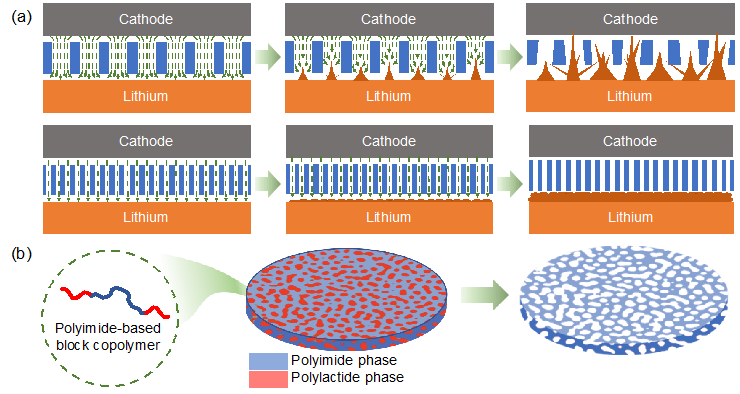THE CHALLENGE
Lithium ion batteries are extremely popular in modern electronics due to their high energy and power density as well as a lack of memory effect. Unfortunately, Li ion batteries are hampered with problems involving internal short circuits due to lithium dendrite growth. Current coating technologies used to impede dendrite formation have macropores which still enable partial dendrite formation.
OUR SOLUTION
The Liu lab at Virginia Tech has developed a mesoporous polyimide separator for dendrite suppression produced via slow thermolysis of a polylactide-b-polyimide-b-polylactide triblock copolymers. The thermolysis in a temperature range of 250-400 °C gradually removed polylactide to create mesopores with controlled diameters in the range of 10-50 nm, without perturbing the polyimide matrix. The resulting mesoporous polyimide thin films exhibited a storage modulus of 1.80 GPa at room temperature and produced excellent dendrite-suppressing capability. The membrane is flame retardant and survives high temperatures up to 500°C.

Figure: (a) Conventional macroporous separators lead to uneven Li⁺ flux and dendrite growth, while mesoporous high-modulus polyimide separators enable uniform flux and stable deposition. (b) Mesoporous polyimide separators are fabricated from block copolymers via solution casting, imidization, and thermolysis.